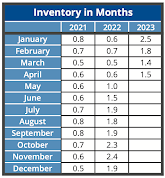This post has large portion excerpted from a May 23 post on Retiring to Washington State by Rod Sager.
Washington is not the first state to effectively end the Single Family Residence (SFR) zoning but they are the latest. As a real estate professional I have mixed feelings about this legislation. Although it is designed to help increase available housing and decrease suburban sprawl, it could have negative consequences for the very people it claim to help. Only time will tell of course. This new law could have serious side effect on propriety values and how the law is applied and what the courts say about its authority over existing CCRs will be paramount to its success or failure.
The idea is that SFR neighborhoods consume allot of space and tends to be more expensive housing that excludes allot lower income people from affording. Allowing multifamily projects in these neighborhoods helps to increase housing that is traditionally more affordable.
So what does the law really do? Well it states that cities with 25,000 to 75,000 people can not zone SFR and must allow at least duplex style (2 units) MFR (Multi Family Residential). In cities with more than 75,000 people which in Clark County means Vancouver only, four flexes are the minimum threshold. So in effect neighbors living in SFR neighborhoods could apply to convert their single family home into a duplex or four-plex depending on the size of their city. Having a bunch of four-flex units would definitely change the character of a neighborhood; generally for the worse. Quiet neighborhoods could become crowded, and obviously filled with renters that often do not take pride in the upkeep and presentation of the home. The upside is that more affordable housing becomes available and that could take pressure off rental prices.
There is another downside that I am 99% certain our legislators and governor are not smart enough to see. Politicians are usually not the brightest bulbs on the tree. That is that the dream of living in a quiet single family home neighborhood will likely evaporate for the people at the lower end of the middle class. A piece of the American Dream will be taken away from the very people the law is designed to help. Why is that, you ask? Because neighborhoods lacking duplexes and four flexes will slowly become more rare and thus more expensive pushing pricing even higher. Neighborhoods with a mix of SFR and MFR will become more affordable, but the true single family home experience will be missing.
So what does this have to do with retirees? Ah that is the question and the answer could be rather favorable. If this law survives the inevitable legal challenges, retirees living in a large house will legally have an option previously unavailable. Rather than sell the house and downsize, they could convert the house to multi-family and stay put utilizing one of the units as their own and renting the other(s) out to subsidize their income at a time when extra income is most appreciated.
This will not be the solution for everyone and I am not sure whether this legislation will supercede deed restrictions (CCRs). It is worth watching for retirees that would like to stay in their current home but either cannot justify the expense of a large home or is unwilling to keep the larger space clean and tidy. This could provide income from an asset that very well may be paid off already. Not a bad way to go.
As I understand the law, and let's be really clear here: I am a Realtor® not a lawyer, The laws does NOT prevent developers from building single family homes, it simply strips local government of the right to zone exclusively for single family homes.
Locally, Vancouver is the only city in Clark County and in fact all of Southwest Washington that will be subject to the four-flex requirement. Battle Ground and Camas are large enough to fall into the duplex category as is Longview in Cowlitz County. Everywhere else in Clark County and Southwest Washington will be exempt from the restrictions this law places on zoning. So people living in Vancouver's unincorporated areas, which is nearly half of Vancouver's residents, should also be exempt from this law. Again I am not a lawyer so if you have genuine concerns consult an attorney or your local governing agency for clarification.
The bottom line is that CCRs authority against the authority of this legislation will be a critical factor in determining whether this law will have more negatives than positive or more positives than negatives. If deed restrictions prevail then the law should be mostly favorable. Property rights are a big part of out constitutional rights and I take them very seriously. If you own property you should too.



